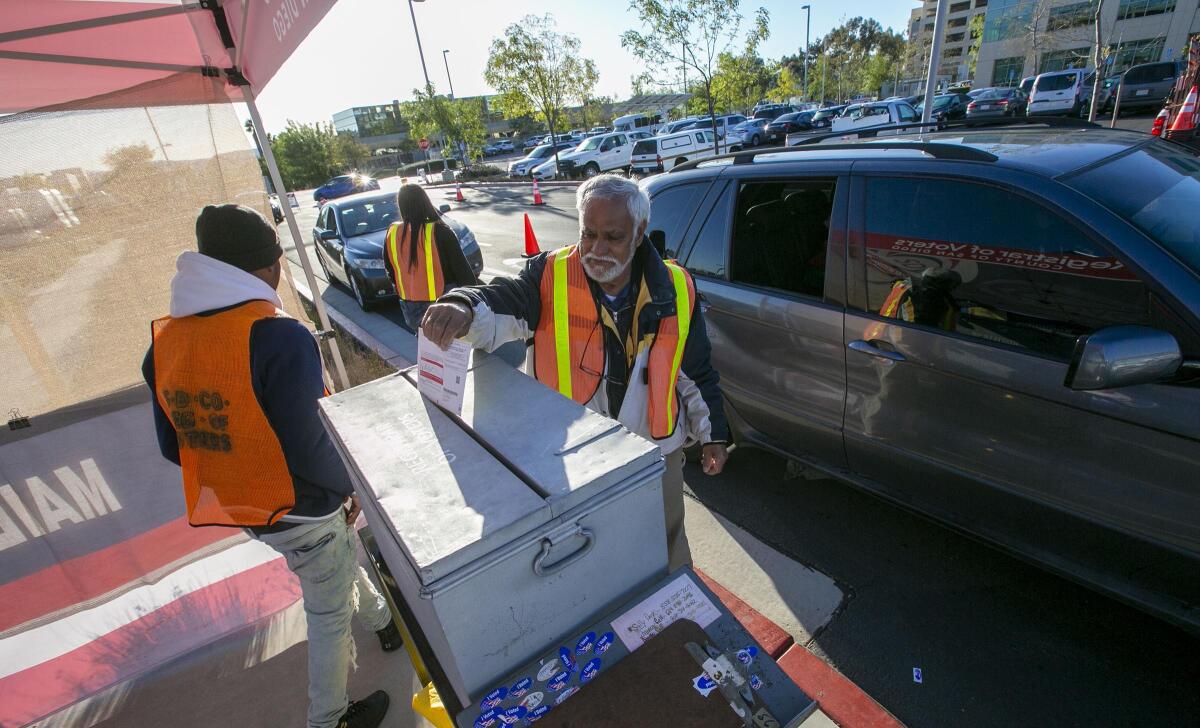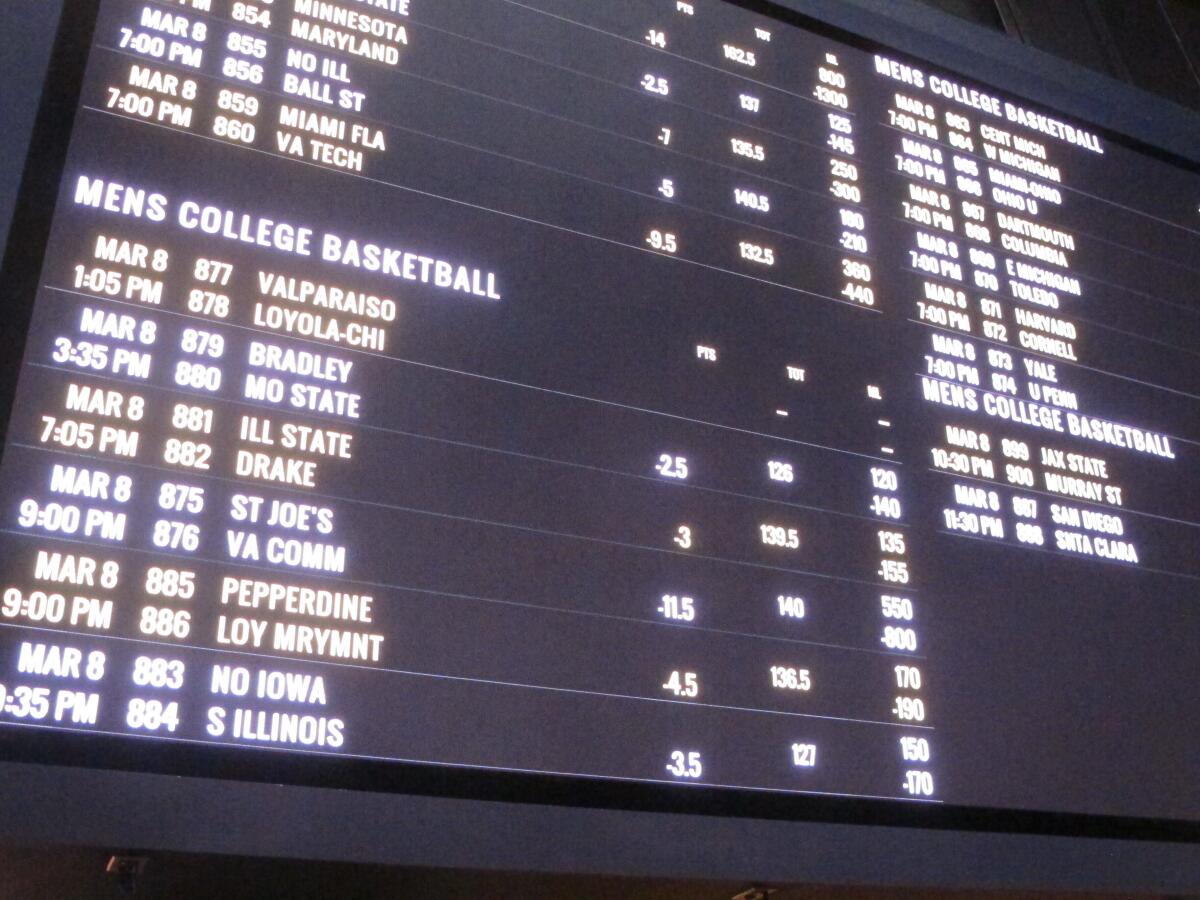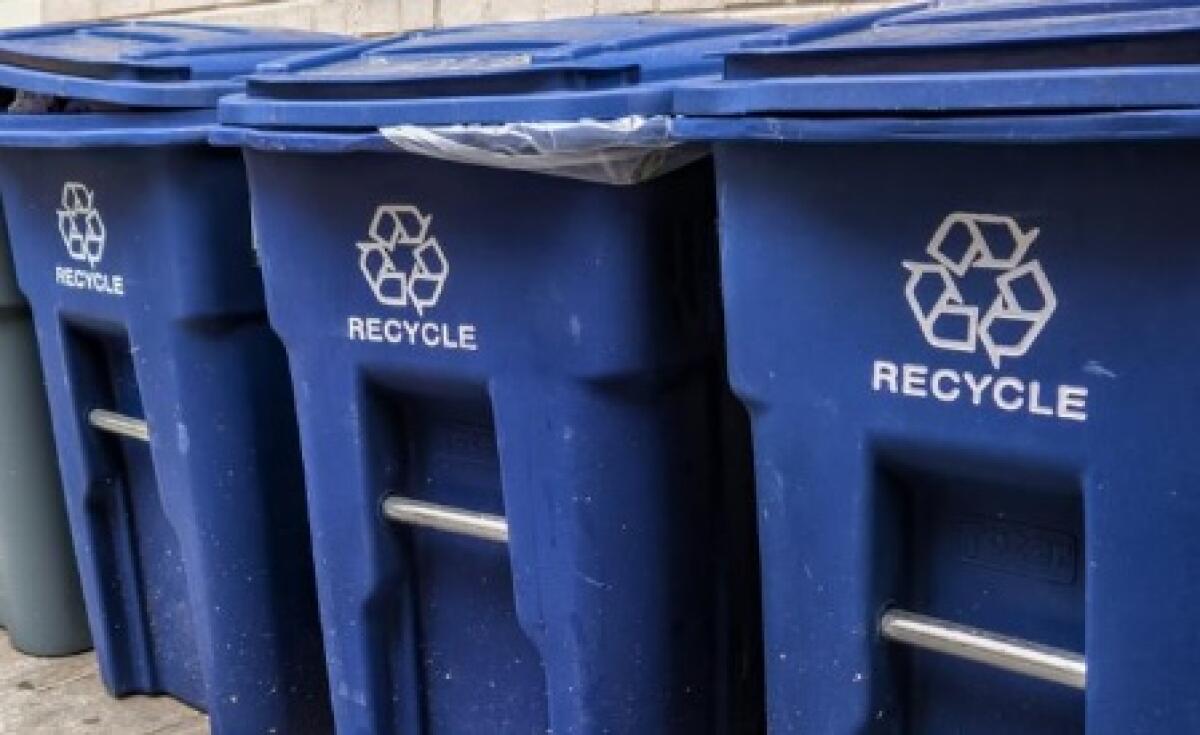California Politics: Gambling, taxes will dominate November’s ballot

- Share via
Statewide primary ballots may have arrived in mailboxes, but the big political money is aimed at November.
In 2012, then-Gov. Jerry Brown signed a law moving all voter-circulated ballot measures to November elections. The change was needed, Democrats said, to ensure important propositions weren’t decided in June elections when voter turnout is often tepid. Or worse.
(Reality check: Democrats also wanted to strike a blow against politically conservative ballot measures because older, white voters reliably show up for primaries and the state’s diverse, liberal electorate often does not.)
Only legislative proposals can now be considered in primary elections. This time, there are none — making the June 7 primary the first in California since 1964 without a single statewide ballot measure.
So what’s in store for November? A lot.
The size of the ballot won’t set a record — the conventional wisdom is voters will see 10, maybe 11, statewide propositions this fall. But the campaign spending might hit new highs. Led by a quartet of measures to expand taxes and raise taxes, voters will probably be inundated with TV ads, online videos and a mountain of political mailers.
The biggest fight: sports betting

The biggest campaign spending is expected in the showdown between a pair of rival ballot measures to legalize sports betting in California.
A proposal to add betting on professional and college games to Native American casinos has already qualified for the ballot, championed by some of the state’s most successful gaming tribes. A second proposal — authorizing online sports betting — will almost certainly qualify once elections officials complete their review of the more than 1.6 million voter signatures collected.
It appears voters could approve both measures, allowing both in-person and online sports betting. But the tribes see the online proposal, bankrolled by gaming giants SportsKings and FanDuel, as a threat to their operations and have taken the unusual step of running opposing TV ads before the rival measure has even qualified for the ballot.
Look for a pitched battle over issues such as the online measure’s promise of sizable funding for homelessness and mental health services as well as the dangers of gambling addiction and tribal sovereignty.
Tax hikes on the wealthy
Two more November ballot measures would impose tax increases on California’s highest earners with the money earmarked for specific new government services.
One seeks a decade’s worth of taxes on incomes above $5 million to fund a broad array of state pandemic prevention and mitigation programs. A second ballot measure would impose a new tax on incomes above $2 million to fund an expansion of zero-emission vehicles and a portion of the money spent on wildfire prevention and suppression programs.
These two tax measures could presumably both take effect — in fact, the electric vehicles initiative explicitly says there’s no conflict with the pandemic prevention proposal. That would mean two new taxes on some of California’s uber-wealthy, a small group of taxpayers who account for a large portion of state budget revenue.
More recycling, school arts and music classes

Voters will probably be asked to substantially expand California’s recycling efforts and school programs focused on arts and music.
The recycling measure, which has already qualified for the ballot, seeks to impose a variety of efforts that have previously failed to gain traction in the Legislature. It would ban plastic foam food containers, impose new recycling standards for single-use plastics and create new consumer dropoff and deposit recycling efforts.
California students would see new arts and music classes offered under a November ballot measure championed by Austin Beutner, the former superintendent of the L.A. Unified School District. The proposal would require as much as $1 billion in existing government revenue to be set aside for the programs beginning in the 2023-24 academic year.
Enjoying this newsletter? Consider subscribing to the Los Angeles Times
Your support helps us deliver the news that matters most. Become a subscriber.
Tobacco, dialysis do-overs
Voters will be asked to take a second look at topics covered in two more ballot measures.
Tobacco companies have placed a referendum on the November ballot in hopes of overturning a 2019 state law banning the sale of flavored tobacco products. Under the rules of a referendum, the companies will be asking for a “no” vote in hopes of scrapping the law signed by Gov. Gavin Newsom.
Meanwhile, a prominent healthcare workers union wants voters to take another look at the operation of kidney dialysis centers. Should their ballot measure signatures be verified in time, it would be their third attempt in four years to push back against the for-profit companies that run most of California’s facilities.
Minimum wage, abortion rights
The ninth and tenth ballot measures aiming for November are the late arrivals on the scene.
On Thursday, the campaign led by wealthy L.A. investor Joe Sanberg submitted more than 1 million signatures on a ballot measure to raise California’s minimum wage to $18 an hour over a three-year period. The effort was one of the last ones to hit the streets for signature gathering and could be the last campaign to submit the petitions to elections officials — leaving less time for the verification process that must end before late June.
Late, too, is the recently announced effort by Newsom and Democratic lawmakers to offer an abortion rights amendment to the California Constitution. The proposal, a state Senate constitutional amendment, must clear both legislative houses before June 30.
Missing from November’s ballot
Should all of these proposals clear their final electoral hurdles, voters would see 11 propositions on California’s Nov. 8 ballot. But the list could have been much longer.
The Assembly unanimously approved a bill Thursday to overhaul the state’s medical malpractice law, legislation crafted by rival interest groups — doctors and lawyers — under a long-sought deal that avoids a big ballot fight in the fall. Slated to take effect next year, Assembly Bill 35 will increase the state’s cap on pain and suffering to $500,000 in cases where a patient dies. That amount would grow to $1 million over the next decade before increasing annually by 2% each year thereafter.
“With this vote today we will remove the dark cloud that has hung over the Capitol for far too long related to medical malpractice reform,” Assembly Member Eloise Gómez Reyes (D-Grand Terrace), the bill’s author, said Thursday.
Other closely watched ballot measure efforts appear to have fallen short of earlier expectations. That includes a sweeping change to the way taxes are increased at the state and local level in California, a business-backed proposal to eliminate employee lawsuits for labor law violations and an effort to reinstate property inheritance rules that voters eliminated in 2020. Some of these could continue their signature-gathering efforts in hopes of qualifying for the November 2024 ballot.
California politics lightning round
— California lawmakers say they are troubled by state Controller Betty Yee’s behind-the-scenes advice to a politically connected company seeking a $600-million no-bid government contract to provide COVID-19 masks.
— California would set aside $40 million for abortion service providers to help cover uninsured residents and an expected influx of women from other states seeking care, under a plan unveiled Wednesday by Newsom.
— The new abortion debate could mean college-educated women are pivotal in congressional races like those in Orange County, where they make up more than 40% of voters.
— After missing multiple self-imposed deadlines, Newsom and legislative leaders remain at odds over how to offer relief from California’s high gas prices.
Times staff writer Melody Gutierrez contributed to this article.
Stay in touch
Did someone forward you this? Sign up here to get California Politics in your inbox.
Until next time, send your comments, suggestions and news tips to capolitics@latimes.com.
Sign up for Essential California
The most important California stories and recommendations in your inbox every morning.
You may occasionally receive promotional content from the Los Angeles Times.







